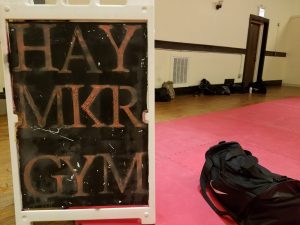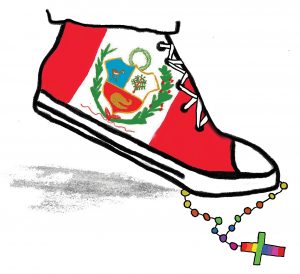Every Sunday at Saint Mary’s Assyrian Church of the East in Roselle, IL, the pews are lined with first to third-generation Assyrians who fill the church during the weekly service.
The choir, comprised mostly of members from Saint Mary’s youth group, sings praises in Aramaic, the ancient language of Assyrians.
“We started by forming a youth group that brings together all of our generations,” said Unleen Kiverkis, president of the youth program.
“We would like to bring everybody together and become much closer as a family and from there grow as a community.”
Tradition and culture is a large part of what brings the people at Saint Mary’s together as a community and Kiverkis uses the youth program, which has about 30 members ranging in age from 18 to 33 to help uphold Assyrian traditions.
“Every youth member is participating and together as a whole we are all like one and we are growing,” Kiverkis said.
“No matter what we do, we always go back; our traditions are always pure Assyrian.”
Nina Tamras, a member of the youth group and choir at Saint Mary, said she is grateful to be a part of a group she can connect to as an Assyrian because even though she shares similarities with kids at school, she can’t connect with them in her language and they will never understand her culture.
“The members of the youth group like to joke that we are all photocopies of each other because our parents use the same exact phrases; they will insult us in the same way and they will compliment us in the same way.”
Paul Nazarene Khio, vice president of the youth program at Saint Mary, said the Assyrian culture dates back to 6700 B.C. and was one of the first civilizations, to accept Christianity, and to accept God in general.
“As Christians today we still carry on traditions; we have the ancient language Aramaic, which we have spoken for thousands of years and we continue to incorporate that in our weekly sermons here at church,” Khio said.
One tradition that has changed over the years is the style of dress worn by women at church. While change usually indicates a liberal transition, the Assyrian dress has actually become more conservative.
“Traditionally women are only supposed to wear either a skirt or a dress to church, but in recent times we changed that to wearing more loose dress pants; it just came with the ages, it was a matter of modesty,” Tamras said.
“When we come into our church, traditionally it is stated that we cover ourselves so we don’t distract others. We are trying to focus on God and when someone wears something a little revealing or a little too short, men and women get distracted by it so we try to keep everyone’s focus, including ourselves, on God.”

Assyrian women also wear a traditional Yalkhtas on their heads, which Tamras said signifies a woman’s position in the church.
“[Women] wear Yalkhtas on our heads in church to signify we are protected by man; men don’t need to wear Yalkhtas because God is above man so they are protected by God,” she said.
“We are protected by man so that is how we signify it, as a form of respect and a form of showing where we rank in our church.”
With the U.S. led war in Iraq still ongoing and civil war raging in Syria, the sense of community church brings is more important than ever.
“We see people coming to church and trying to form a bond, a unity, something that wasn’t really stressed or urged upon us before just because the severity of the situation never really hit close to us, Khio said. “But now that it is affecting us I feel like people here are growing closer and forming a much larger and stronger community.”
Kiverkis echoed those sentiments. “We don’t have the land. What we have is our traditions and our language. We try to keep that alive from our churches, social events, and most recently the events that are supporting the dislocated people in the Middle East,” she said.
“Something I really cherish most about my community is, what makes us special, what makes us different from everybody else is that whenever hardships come, even if it is a stranger, we all stand together like one hand and we help them,” Kiverkis said.












Be First to Comment